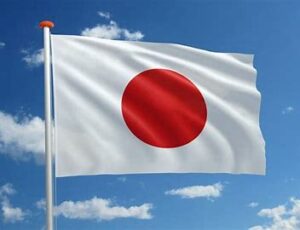
Australia Issues a Draft Law to Amend Global Minimum Tax Rules
On February 16, 2026, Australia issued the Taxation (Multinational—Global and Domestic Minimum Tax)
Amendment (2026 Measures No.1) Rules 2026, to amend its Global Minimum Tax Rules.
As a permanent establishment (PE) is treated as a separate entity for Pillar Two GloBE purposes the Pillar Two GloBE income of a PE needs to be determined.
However, the Pillar Two GloBE income rules rely on the financial accounts of the entity which may include the profits attributable to a PE (ie for financial accounting purposes, a PE is not always recognized and there may not be separate financial accounts).
Therefore, Article 3.4 of the OECD Model Rules includes provisions to allocate the income between an entity and its PEs.
Where a PE exists under a tax treaty, domestic law or would have existed in a jurisdiction with no corporate income tax if there was a tax treaty in place if there are separate financial accounts for the PE, these apply, and the net income or loss is used.
If there are no financial accounts in place, accounts would need to be prepared based on the accounting standard the UPE used to prepare the consolidated financial accounts. The amount of income and expenses attributed to the PE are based on the provisions of the relevant tax treaty or domestic law.
Note that whilst the tax treatment of the income in the PE jurisdiction has no impact on the allocation to the PE jurisdiction, timing differences may adjust the treatment.
The Pillar Two GloBE rules deem there to be a PE where there is no actual PE, and the income deriving from the activities of the PE is exempt in the residence jurisdiction (ie the residence of the main entity).
In this case, the amount attributable to the PE is the amount of tax-exempt income as well as any expenses not taken into account by the main entity because they are attributable to foreign activities.
Given income or losses are attributable to PEs if they are included in the financial accounts of the main entity they would need to be deducted when calculating Pillar Two GloBE income.
If there is a loss in a PE, this will be treated as an expense of the main entity under Article 3.4.5 of the OECD Model Rules to the extent that the loss of the PE is treated as an expense for domestic tax purposes.
Pillar Two GloBE income that is subsequently earned by the PE is treated as income of the main entity up to the amount treated as an expense by the main entity.
In general, for tax purposes the income of transparent entities (eg tax transparent partnerships, LLPs and LLCs) is taxed on the underlying owners. However, for accounting purposes, these entities would generally have their own financial accounts.
Given the Pillar Two GloBE rules rely on financial accounting information, specific additional rules are provided in Article 3.5 of the OECD Model Rules to correctly allocate the income of transparent entities in a way that reflects most domestic tax treatment.
Firstly, the financial accounting net income or loss of a transparent entity or reverse hybrid is reduced by any amounts due to owners that aren’t members of the MNE group. This is necessary as the Pillar Two GloBE ETR of the group members won’t include income or taxes paid by non-group members.
Secondly, if the transparent entity or reverse hybrid carries our business through a PE, this needs to be deducted from the accounting income of the transparent entity or reverse hybrid, given that PEs are treated as separate constituent entities for Pillar Two GloBE purposes.
Finally, any remaining amount of the financial accounting income or loss is allocated:
– To the owners if the entity is a transparent entity (based on their ownership interest). This can flow up the chain if there are a number of transparent owners.
– To the entity itself if the entity is a reverse hybrid
– To the UPE if the entity is a transparent entity and the UPE of the MNE group.

On February 16, 2026, Australia issued the Taxation (Multinational—Global and Domestic Minimum Tax)
Amendment (2026 Measures No.1) Rules 2026, to amend its Global Minimum Tax Rules.

On February 13, 2026, Poland issued a draft law to amend its Global Minimum Tax Law for the December 2023, June 2024 and January 2025 OECD Administrative Guidance. This also includes QDMTT changes, including the introduction of a Local Financial Accounting Standard rule.

On February 12, 2026, Cabinet Resolution No. (2) of 2026, was published in the Official Gazette to provide for the detailed implementation of the IIR and QDMTT in Qatar.

On February 6, 2026, the Italian Revenue Agency approved the model for the GloBE tax Return. This is a consolidated form with information on the calculation of top-up tax under the IIR, UTPR and QDMTT.

On January 29, 2026, Canada’s Department of Finance released draft GMTA technical amendments introducing an elective private investment entity de-consolidation rule for Pillar Two/GMTA purposes.

On January 30, 2026, Japan’s National Tax Agency issued a law implementation circular clarifying certain aspects of its UTPR and QDMTT.

In January 2026, Canada issued the filing procedures for the GIR, GMT Return and the Double Filing Relief Notification.

On January 19, 2026, South Korea issued a Draft Law to amend the Enforcement Decree to the International Tax Adjustment Act. This provides for detailed provisions for the application of the QDMTT and will also extend the Transitional CbCR Safe Harbour by 1 year (as provided in the January 2026 OECD Side-by-Side Package).

On January 19, 2026, the Hong Kong Inland Revenue Department opened its E-filing portal for the submission of Top-Up Tax Notifications
| Cookie | Duration | Description |
|---|---|---|
| cookielawinfo-checkbox-analytics | 11 months | This cookie is set by GDPR Cookie Consent plugin. The cookie is used to store the user consent for the cookies in the category "Analytics". |
| cookielawinfo-checkbox-functional | 11 months | The cookie is set by GDPR cookie consent to record the user consent for the cookies in the category "Functional". |
| cookielawinfo-checkbox-necessary | 11 months | This cookie is set by GDPR Cookie Consent plugin. The cookies is used to store the user consent for the cookies in the category "Necessary". |
| cookielawinfo-checkbox-others | 11 months | This cookie is set by GDPR Cookie Consent plugin. The cookie is used to store the user consent for the cookies in the category "Other. |
| cookielawinfo-checkbox-performance | 11 months | This cookie is set by GDPR Cookie Consent plugin. The cookie is used to store the user consent for the cookies in the category "Performance". |
| viewed_cookie_policy | 11 months | The cookie is set by the GDPR Cookie Consent plugin and is used to store whether or not user has consented to the use of cookies. It does not store any personal data. |